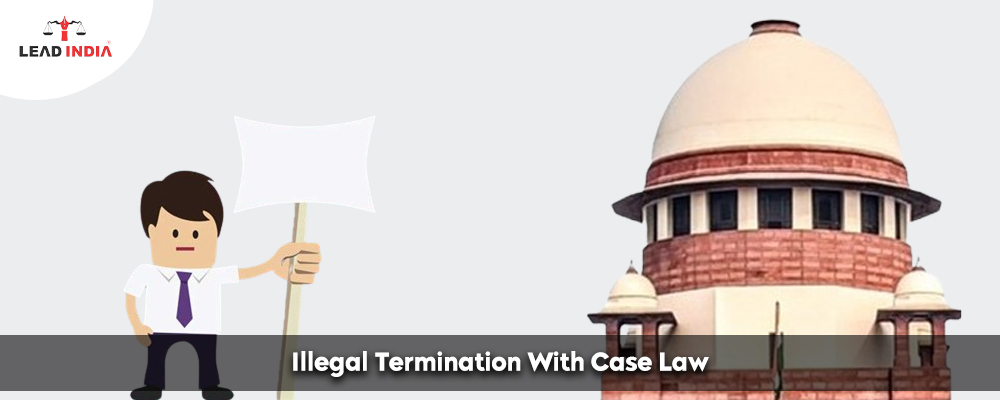Even though our professions are essential to our survival, things can go wrong from time to time. Our employers have the right to fire us for a variety of reasons. Nevertheless, it is occasionally possible to lose your job even when it was not your fault.
Being knowledgeable of the laws governing illegal termination in India is crucial since these kinds of events can deal a serious financial and psychological damage to an employee.
Illegal Termination: What is It?
When an employer terminates an employee’s employment contract in violation of one or more terms of the contract or an employment law statute, it is referred to as illegal termination, wrongful dismissal, or wrongful discharge.
Need A Legal Advice
The internet is not a lawyer and neither are you. Talk to a real lawyer about your legal issue

Illegal Termination: Types
- Discrimination: It is a kind of unlawful termination if you are fired due to your age, race, sex, nationality, or any other discriminatory reason. For example, a company cannot fire an employee for having HIV based on discrimination. Any employer who did this would be seen to have fired employees unfairly.
- Breach of Contract: If you and your employer have signed a contract for employment, you both have an obligation to adhere by its provisions. It is a kind of wrongful termination if the employer violates any of these conditions. It would be considered unlawful termination of employment if any employee were fired by forcing them to resign.
- Additional factors: It’s also considered wrongful termination if you were let go due to an argument at work, a personal grudge, or your failure to follow your employer’s or employee’s illegal commands. You cannot be fired by your employer for personal grievances against them.
Laws Governing Illegal Termination
- Various labour regulations, including the Industrial Disputes Act of 1947, the Workmen’s Compensation Act of 1923, the State Shops and Establishments Acts, etc., will apply if the unjust termination of employment violates any labour laws. All of India’s main labour regulations address unjust termination of employment.
- Nonetheless, the Indian labour laws also apply to the management sector, since they fall under the definition of “workman.”
Case Laws on Illegal Termination
- In the case of Delhi Horticulture v. Delhi Administration, a casual worker’s layoff occurred in contravention of the IDA’s section 25-F. In this ruling, the Supreme Court ordered the employer to provide INR 23,000 in compensation rather than reinstatement in place of dismissal. The SC had noted the following justifications for paying damages rather than reinstatement:
- The worker had only been employee for a scant 11 months.
- No worker’s junior was permit to stay on the payroll.
- The worker received daily pay while working as a casual for a brief length of time.
- Eight years had passed since the removal date in terms of computation.
- The worker was only 18 or 19 years old at the time of deportation, and even after 8 years, he would only be hire back as a casual worker receiving daily pay.
- In the matter of Triloki v. Ashok Hotel, the HC determin that an employee could be grant reinstatement if:
- After completing the whole selection process for a sanctioned post, he or she joined the service, &
- He or she has worked for the company for a long enough duration.
It was also mention that while defining a “sufficient long period” may be challenging, it must be significant, that is, 10/15/20 years.
Regarding this ruling, the HC said that it would be unrealistic and unfeasible for the employer and employee if the order of reinstatement was issue after 15 to 20 years. The environment and culture of the workplace completely shift. Additionally, the criteria for jobs vary. An employee may not be suitable now, but they might be suitable in 15 to 20 years. The dynamics of operation have completely altered.
One can talk to lawyers from Lead India for any kind of legal support. In India, free legal advice online can be obtain at Lead India. Along with receiving free legal advice online, one can also ask questions to the experts online free through Lead India.





 Talk to a Lawyer
Talk to a Lawyer